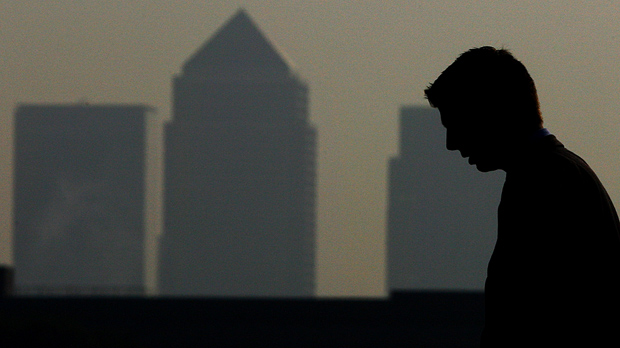Markets braced for global turmoil
All eyes turn to the opening bell of the stock markets, due just hours after leaders from the world’s major powers stage emergency meetings, Economics Editor Faisal Islam reports.
After a week of trading panic, the world’s major markets begin to reopen in a few hours – with fear appearing ascendant over greed.
Markets will open to a full-blown cross-Atlantic Debt crisis afflicting both Europe and America, with world leaders largely by the beach.
The Middle East’s smaller stock markets gave a taste of what might come – with sharp falls in Saudi Arabia, Qatar, Dubai and Israel over the weekend.
Alan Greenspan said the S&P downgrade had “hit a nerve”, damaging the American psyche.
One of those at the helm during America’s boom years says even aside from the markets, this weekend stripping of America’s AAA rating has had a sharp impact on America.
Former Federal Reserve Chairman Alan Greenspan told the US press he expects a negative reaction to the Standard and Poor’s action. Mr Greenspan said the S&P downgrade had “hit a nerve”, damaging the American psyche.
Whatever the reaction to US developments, Europe’s lack of decisive action is just as perilous for world markets, with urgent action expected tomorrow morning. As Italian and Spanish government borrowing rates approach danger levels.
Europe
The Eurozone crisis is heading for one of three endgames with profound disagreements between Brussels, Berlin, Paris, and Frankfurt.
France has apparently been lobbying for a massive increase in Europe’s already huge bailout facility to trillions of euros to provide a backup to Spain. Germany is not keen.
The backdoor route would be to get the European Central Bank to buy the debt of Italy and Spain directly on Monday morning – the German members of its board voted against last week, they have been holding a teleconference this afternoon. That is being called the “bazooka”.
All this at a time when the euro should be taking advantage of uncertainty over the dollar.
And finally the dreaded option – euro break-up. And all this at a time when the euro should be taking advantage of uncertainty over the dollar.
Core of the crisis is the rampantly high borrowing rates charged by the bond markets for Euro countries perceived as risky.
Greece theoretically would be charged a credit card-style rate of nearly 15 per cent. Impossible.
But rates have also shot up for Spain and Italy – over 6 per cent, close to danger levels.
The tumult has even impacted upon France – with its borrowing rate at a record above that of Germany.
Germany is still warranting very low interest rates.
Another answer being looked at by Brussels is combining all of Europe’s debts together with an average rate of around 3.5 per cent – the so-called Eurobond.

-
Latest news
-
Laughing Boy: New play tells the tragic tale of Connor Sparrowhawk5m

-
Sewage warning system allows some of worst test results to be left off rating system, analysis shows3m

-
Post Office inquiry: Former CEO didn’t like word “bugs” to refer to faulty IT system4m

-
Israeli soldier speaks out on war in Gaza12m

-
PM’s defence spending boost should be ‘celebrated’, says former Armed Forces Minister4m

-




